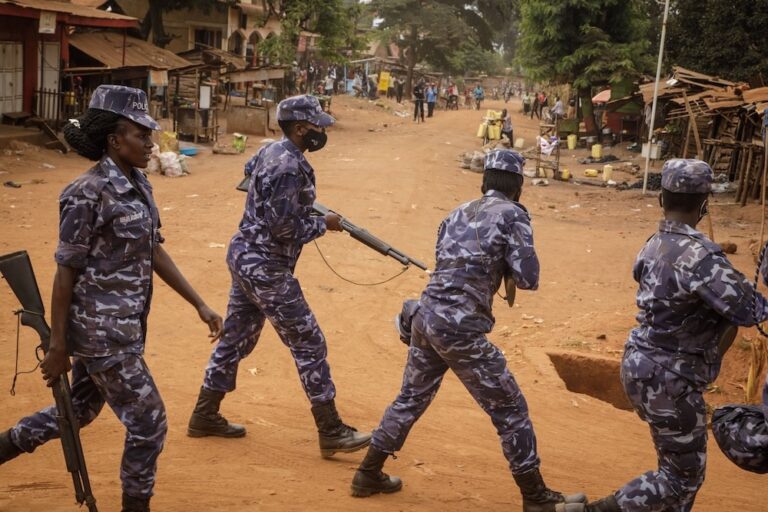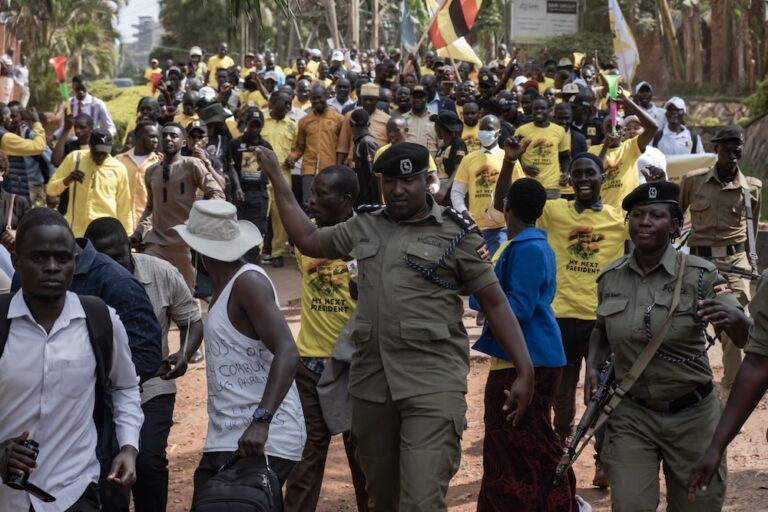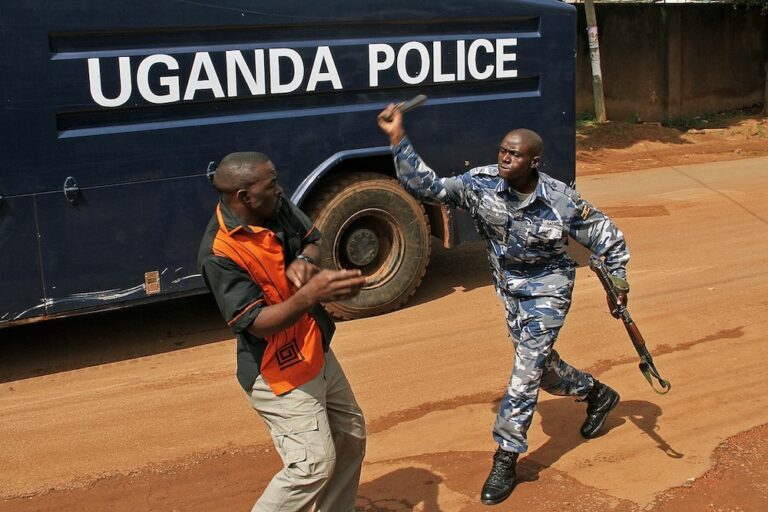(NDIMA/IFEX) – A large contingent of security officers raided the offices of Uganda’s largest independent newspaper, “The Monitor”, on 10 October 2002. The swoop by officers from the Criminal Investigation Department (CID) and regular police was prompted by a story published in the 10 October edition of the newspaper about an army helicopter that allegedly […]
(NDIMA/IFEX) – A large contingent of security officers raided the offices of Uganda’s largest independent newspaper, “The Monitor”, on 10 October 2002.
The swoop by officers from the Criminal Investigation Department (CID) and regular police was prompted by a story published in the 10 October edition of the newspaper about an army helicopter that allegedly crashed in the Adilanga area of Pader district, in northern Uganda.
The security officers wanted to know where the writer of the story had obtained his information.
Scores of security men poured into the newspaper’s three offices and searched the premises. Business director James Serugo said the officers refused to identify themselves and did not produce a search warrant. “Led by a man who only identified himself as Nabasa, they said they were acting under the police statute which allows them to conduct impromptu searches on private property,” Serugo explained.
Earlier on 10 October, army spokesman Major Shaban Bantariza denied the report that a military helicopter had crashed during a fight with rebels in northern Uganda. “The Monitor”‘s editor, Charles Onyango-Obbo, was not in the office when the police arrived. He said that he had confirmed the report’s accuracy with the writer of the story, Frank Nyakairu.
Background Information
Ugandan President Yoweri Museveni’s government has been fighting rebels of the Lord Resistance Army (LRA) for years. The rebels operate in northern Uganda and Sudan. Led by Joseph Kony, their purported goal is to introduce a government based on Christian fundamentalist principles, but many regard them as simply opposed to Museveni’s government.
The Museveni government has become increasingly sensitive to media reports critical of its military adventures.
Officially, the Uganda People’s Defence Forces’ (UPDF) 4th Division spokesman, Lt Paddy Ankunda, said, “It is absolutely not true that we lost a gunship in any operation.” However, military sources in Kampala told “The Monitor” that one of their helicopters had come down. An official ruled out lack of fuel as a reason for the crash.
Defence Minister Amama Mbabazi recently told a parliamentary committee that the UPDF had not deployed helicopters against the LRA because the rebels had air-to-surface missiles and were “better armed than the armies of some African countries.”
On 10 October, President Museveni, who is overseeing the operation in northern Uganda, said, “I will go back to the bush until those terrorists are finished.”


